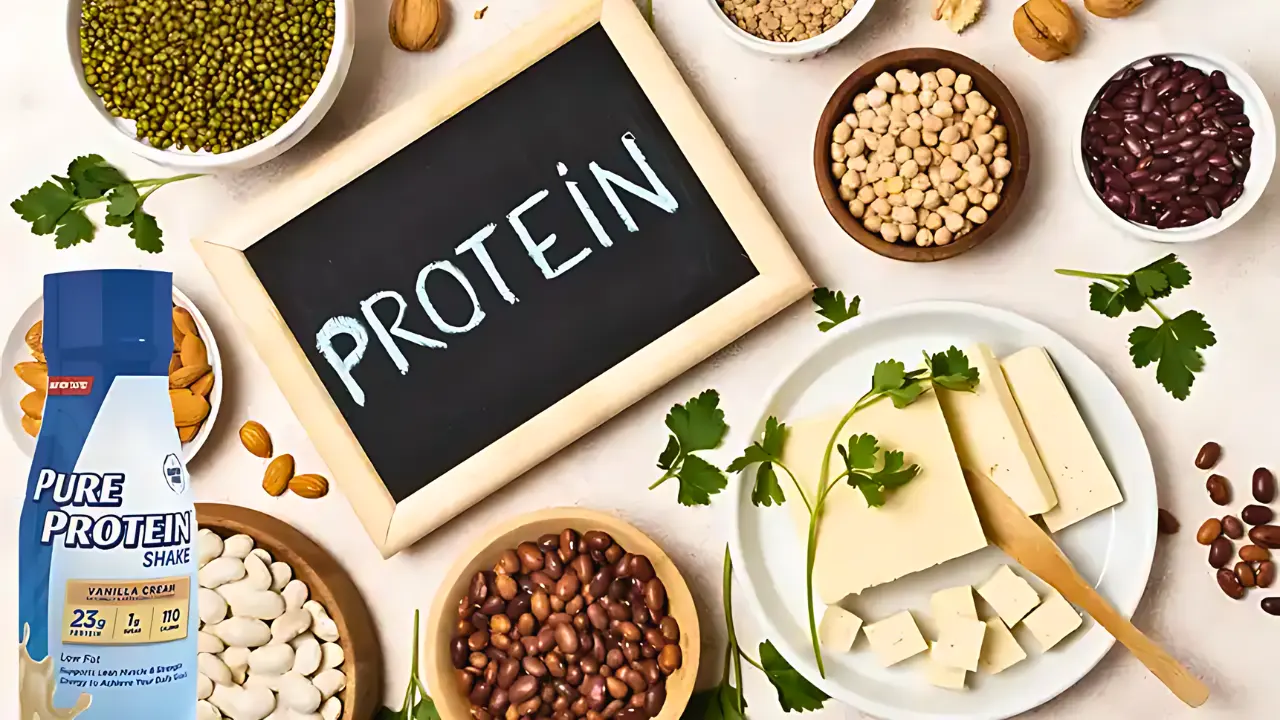Drinking Protein
Protein is important for us, but we all don’t get enough of it. Read the article to learn how and how much daily protein you should get.
Daily protein needs vary for individuals based on factors like age, gender, activity level, and overall health. Here are some general guidelines for daily protein intake:
Men:
- Sedentary men: About 56-63 grams of protein per day
- Active men (engaged in regular physical activity or strength training): About 70-98 grams of protein per day or more
Women:
- Sedentary women: About 46-50 grams of protein per day
- Active women (engaged in regular physical activity or strength training): About 57-79 grams of protein per day or more
Children:
Protein needs for children can vary based on their age and development stage. Here are some estimated daily protein recommendations for children:
- Infants (0-6 months): 9-11 grams of protein per day
- Toddlers (1-3 years): 13-16 grams of protein per day
- Children (4-8 years): 19-34 grams of protein per day
- Pre-teens and teens (9-13 years): 34-46 grams of protein per day
- Teen boys (14-18 years): 52-61 grams of protein per day
- Teen girls (14-18 years): 46-52 grams of protein per day
These are general recommendations and can vary based on individual factors. It’s important to note that athletes, pregnant or breastfeeding women, and individuals with specific health conditions may need more protein. Consulting with a healthcare provider or registered dietitian can help determine the appropriate protein intake for your specific circumstances.
Choosing between eating protein-rich foods (Eating Protein) and taking protein supplements in shakes or drinks (Drinking Protein) depends on various factors, including your dietary preferences, nutritional goals, and overall health. Both options can be valuable in different situations. Here’s a breakdown of each approach:
Eating Protein – Protein-Rich Foods Advantages
- Whole Food Nutrition: Consuming protein from whole foods provides not only protein but also other essential nutrients like vitamins, minerals, fiber, and healthy fats.
- Satiety: Protein-rich whole food sources can help you feel full longer due to their fiber content, potentially aiding in weight management.
- Taste and Variety: Eating protein-rich foods offers a wide range of flavors and textures, making meals more enjoyable. Disadvantages:
- Time-Consuming: Preparing and cooking protein-rich meals can take time, which may not be ideal for people with busy lifestyles.
- Portability: Whole foods are not as convenient to carry and consume on the go as protein shakes.
Drinking Protein – Protein Shakes or Drinks Advantages
- Convenience: Protein shakes and drinks are quick and easy to prepare and consume, making them a convenient option for busy individuals.
- Portability: They can be easily carried and consumed anywhere, making them suitable for post-workout recovery.
- Precise Dosage: Protein supplements allow you to measure and control the exact amount of protein you consume. Disadvantages:
- Nutrient Deficiency: Protein supplements may lack the broad spectrum of nutrients found in whole foods.
- Taste: Some people find the taste of protein shakes less enjoyable compared to whole foods.
- Cost: High-quality protein supplements can be more expensive than whole food sources.
Examples of Protein Content in Foods (per 100 grams):
- Salmon: Roughly 25 grams of protein
- Tofu: About 8 grams of protein
- Lentils: Approximately 9 grams of protein
- Eggs: Around 13 grams of protein
- Greek yogurt: About 10 grams of protein
- Quinoa: Roughly 4 grams of protein
- Almonds: Approximately 21 grams of protein
- Whey protein powder (supplement): Typically 60-80 grams of protein (varies by brand and type)
Recommended Daily Protein Intake
The recommended daily protein intake varies based on age, gender, and activity level. For most adults, it’s around 0.8 grams of protein per kilogram of body weight. This means a sedentary man might need about 56-63 grams daily, while an active person might require 70-98 grams. Meeting these needs helps maintain muscle mass and overall health.
Common Myths About Protein Consumption
Many myths surround protein consumption, such as the belief that more protein always leads to better muscle growth or weight loss. Some think that protein shakes are essential for gaining muscle, while in reality, balanced meals can provide adequate protein. Another myth is that high protein intake harms kidneys, but this is usually a concern only for those with pre-existing kidney conditions.
How Much Protein is Too Much?
While protein is essential, consuming excessively high amounts can be problematic. For most people, intakes above 2 grams per kilogram of body weight per day are unnecessary and may strain the kidneys over time. It’s important to balance protein intake with other nutrients and avoid excessive consumption, which can lead to dehydration and nutrient imbalances.
Final Words
In the end, understanding the right amount and sources of protein is crucial for maintaining overall health and well-being. Whether you choose to meet your protein needs through whole foods or supplements, it’s essential to find a balance that works for your individual needs and lifestyle. Avoid common myths and aim for a moderate intake that supports your goals without leading to potential health issues. Consulting with a healthcare or nutrition professional can help tailor your protein consumption to your specific requirements, ensuring you achieve optimal health outcomes.
By incorporating these tips into your routine, you can enhance your Body Health. For more detailed information on Healthy Life at wellhealthorganic.com, visit our website.

